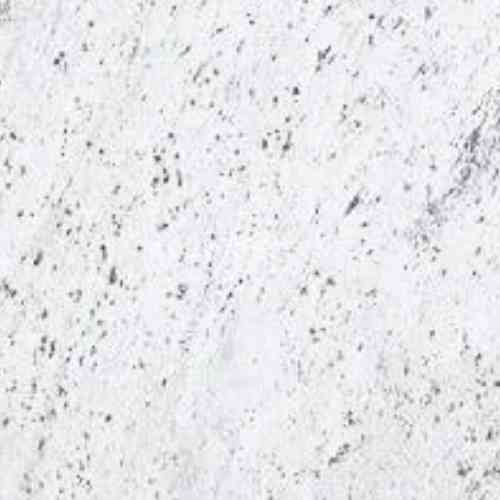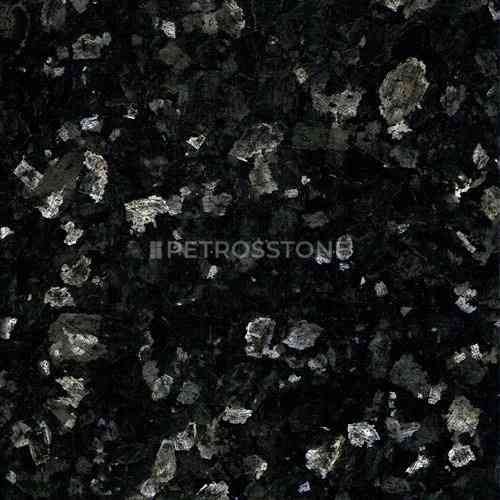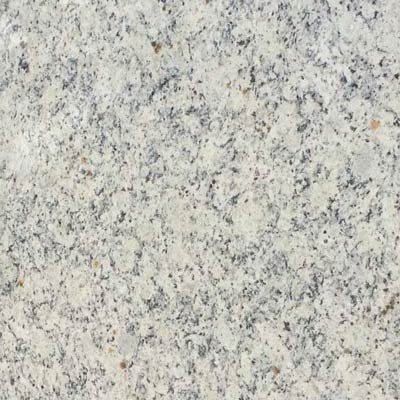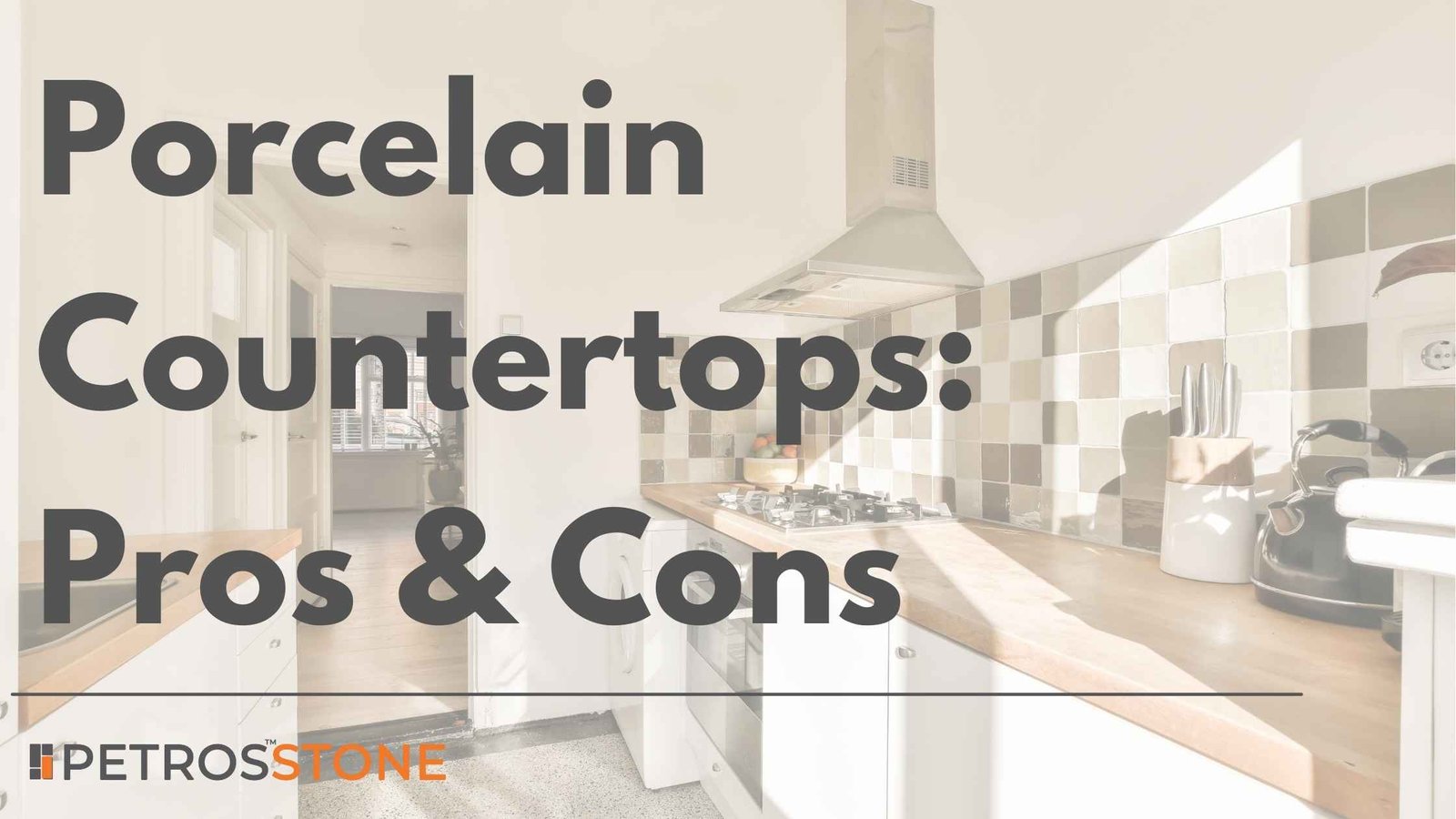
In this article we will go over the pros and cons of porcelain countertops and then put them against other alternatives like granite, quartz and help you make the right decision.
Porcelain countertops are becoming popular for homeowners and designers due to their blend of durability, aesthetic versatility, and low maintenance. Made by firing natural clay and minerals at high temperatures, porcelain countertops are cost effective, lightweight yet highly robust. Below is a comprehensive guide outlining their advantages and disadvantages to help you decide whether they’re right for your space.
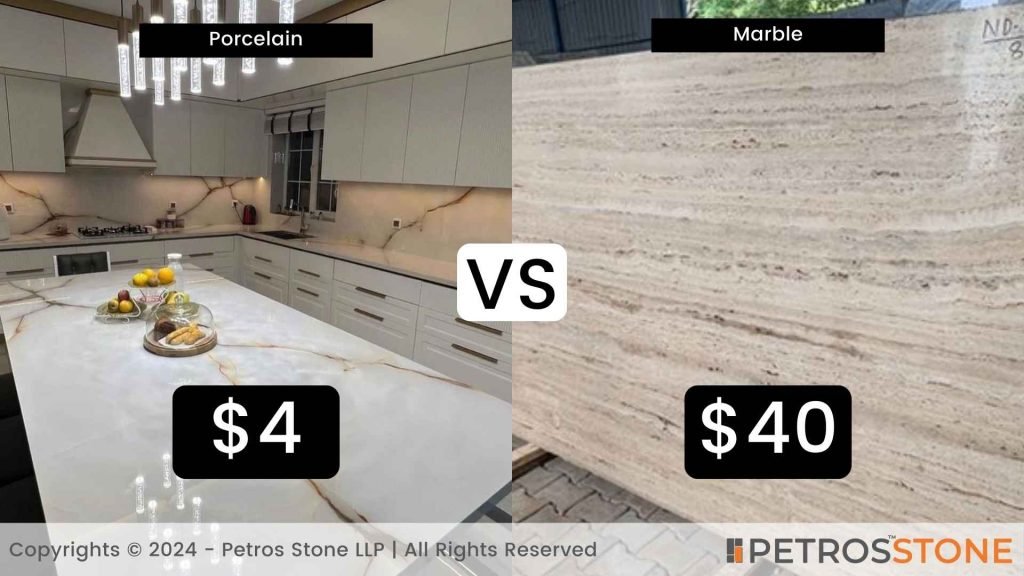
- What Are Porcelain Countertops?
- Pros and Cons of Porcelain Countertops
- Advantages of Porcelain Countertops
- Cons of Porcelain Countertops
- Applications of Porcelain Countertops
- 1. Porcelain vs. Granite
- 2. Porcelain vs. Quartz
- Maintenance and Installation of Porcelain Countertops
- Warranty and After-Sale Support
- Conclusion
What Are Porcelain Countertops?
- Porcelain countertops are engineered surfaces created from refined clay and natural minerals.
- They are fired at high temperatures, making the material extremely durable and wear-resistant.
- The slabs are coated with a pigmented glaze that mimics the appearance of natural stone, wood, or other finishes, offering a wide range of design possibilities.
Pros and Cons of Porcelain Countertops
| Pros | Cons | ||
| Heat Resistance | Can withstand high temperatures without damage. | Higher Cost | More expensive than some alternatives like laminate. |
| Durability | Resistant to chips, cracks, and heavy impacts. | Susceptible to Chipping | Edges can chip under significant force. |
| Scratch Resistance | Surface resists scratches from daily use. | Thin Profile | May not appeal to those wanting a thicker slab look. |
| Non-Porous | Resists stains and bacterial growth. | Cold Surface | Retains a cooler temperature, which may be uncomfortable in colder climates. |
| Low Maintenance | No sealing required, easy to clean. | Complex Installation | Requires skilled professionals and specialized tools. |
| UV Resistant | Doesn’t fade in sunlight, ideal for outdoor use. | Limited Resurfacing | Cannot be refinished once damaged. |
| Eco-Friendly | Made from natural, recyclable materials. | Noisy Surface | Hard surface amplifies noise when struck. |
| Aesthetic Variety | Mimics various finishes like marble or wood. | Edge Seam Limitations | Edges may not fully match the surface design. |
| Lightweight | Easy to install and adaptable for designs. | Initial Installation Cost | High upfront investment for quality outcomes. |
Advantages of Porcelain Countertops
1. Heat Resistance
- Porcelain is resistant to extreme temperatures because of its high-temperature manufacturing process.
- This means placing hot pans and pots directly on the surface without causing burns or discoloration, making it ideal for busy kitchens.
- Unlike quartz or other synthetic materials that may warp or crack, porcelain maintains its structural integrity even under prolonged heat exposure.
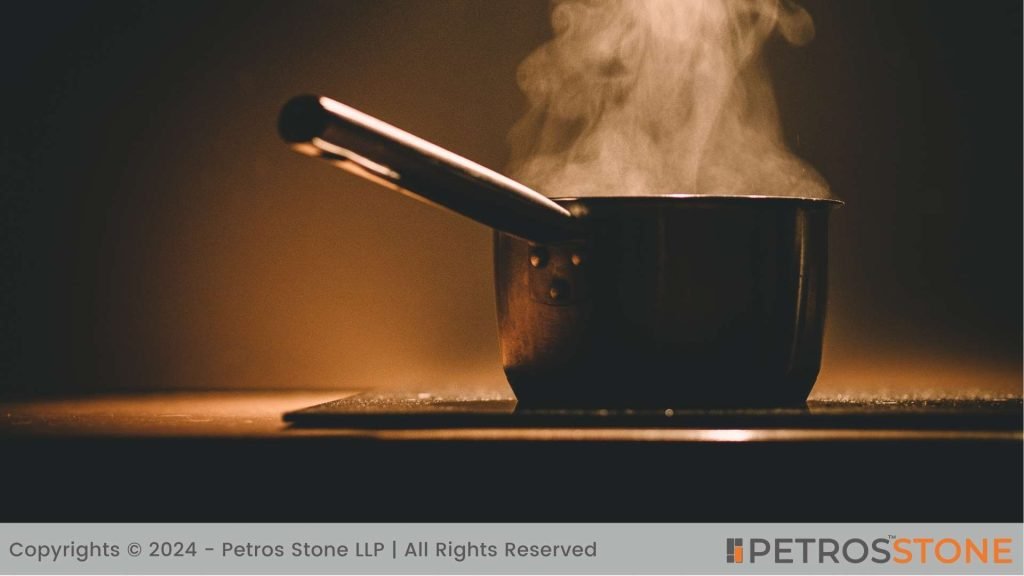
2. Durability and Hardness
- Porcelain is incredibly durable, boasting a hardness greater than granite.
- It can withstand heavy impacts, making it less likely to chip or crack with regular use.
- This makes it a reliable option for kitchens and bathrooms that experience heavy daily usage.
- Its longevity ensures that your investment pays off over time.
3. Scratch Resistance
- The dense surface of porcelain counters resists scratches from knives, pots, or heavy kitchen equipment.
- Although it’s advisable to use cutting boards to preserve your knives’ sharpness, the countertop surface itself is remarkably resilient and retains its polish over years of use.
4. Non-porous and Stain Resistance
- Porcelain is non-porous, meaning liquids cannot seep into the surface.
- This prevents stains from substances like coffee, wine, or oil and makes it hygienic by limiting bacterial growth.
- This feature mainly benefits households with children or food preparation spaces that prioritize cleanliness.
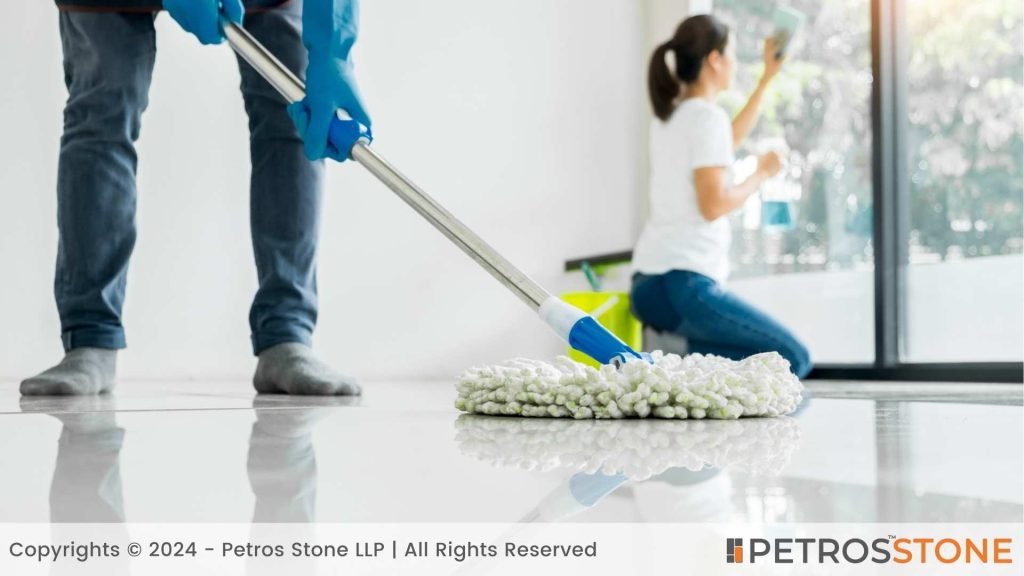
5. Low Maintenance
- Porcelain countertops require no sealing, unlike natural stones like granite or marble.
- They can be cleaned easily with a damp cloth and mild detergent.
- Harsh cleaning agents, like bleach, can also be used without fear of damaging the material.
- This ease of maintenance saves time and money over the countertop’s lifespan.
6. UV Resistance
- Porcelain’s UV-resistant properties prevent discoloration or fading, even with prolonged exposure to sunlight.
- This makes it an excellent choice for outdoor kitchens or spaces with large windows where sunlight might hit the counters directly.
7. Eco-Friendly
- Porcelain is made from natural materials like clay, feldspar, and sand, which are abundant and sustainable.
- Moreover, it is fully recyclable, reducing its environmental footprint.
- Its durability also minimizes the need for frequent replacements, further contributing to sustainability.
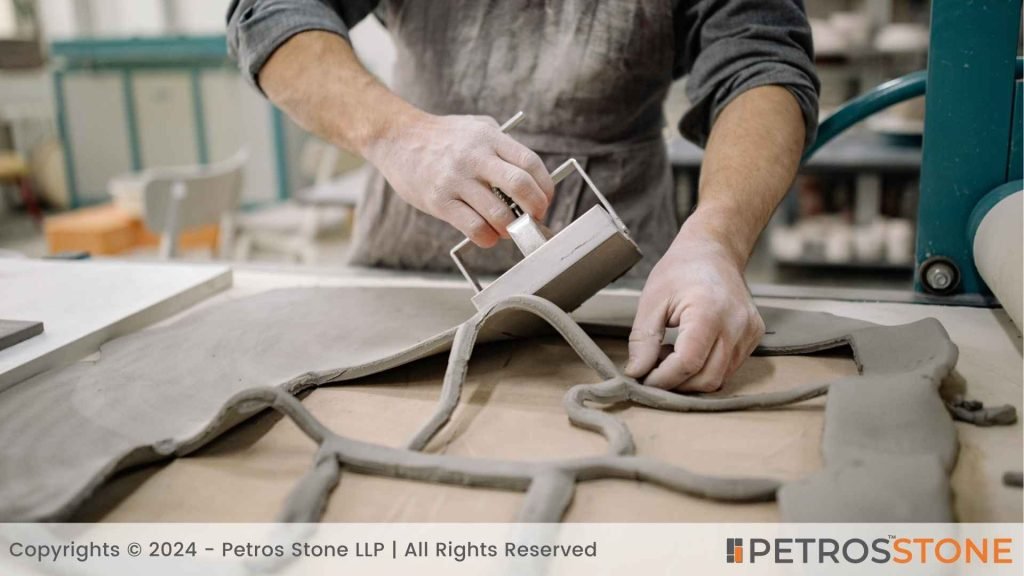
8. Aesthetic Variety
- Porcelain can be manufactured in various colors, patterns, and textures.
- It can mimic the luxurious look of marble, the rustic charm of wood, or the industrial feel of concrete—all at a fraction of the maintenance requirements of these materials.
- Large-format slabs also provide a seamless appearance, enhancing modern kitchen aesthetics.
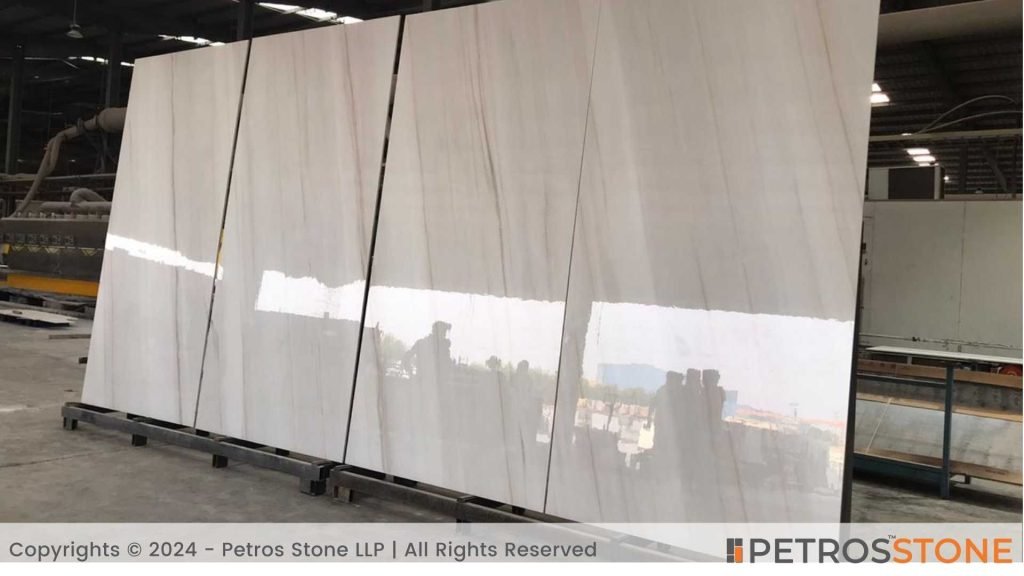
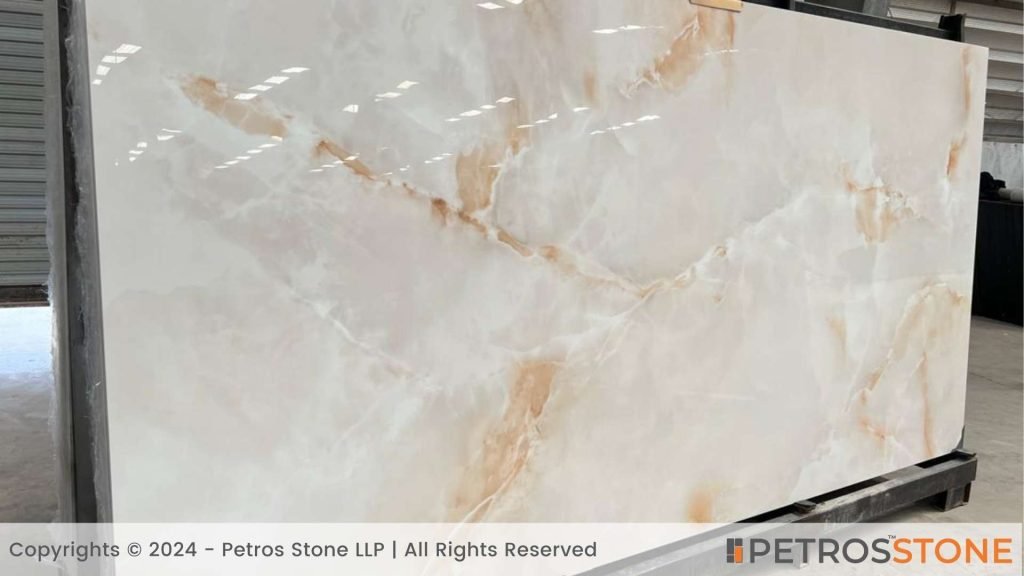
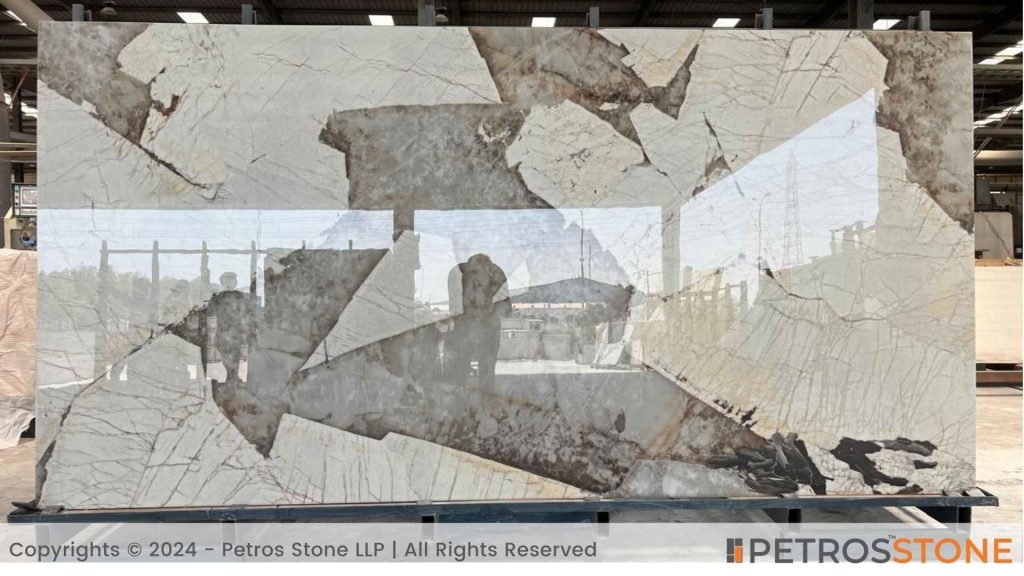


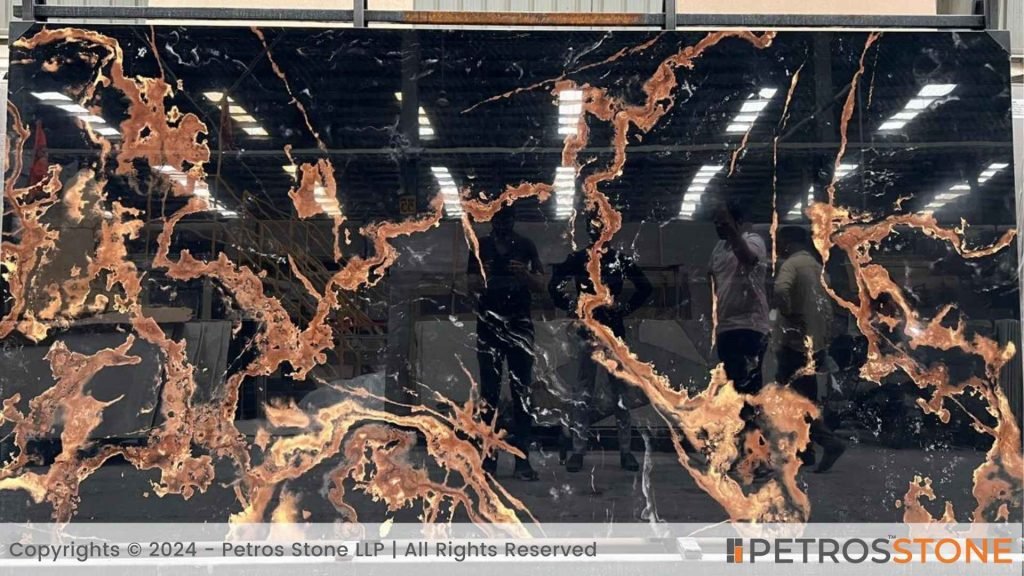

9. Lightweight and Flexible Design
- Porcelain’s lightweight nature makes it easy to install and adaptable for various design applications, such as countertops, backsplashes, or furniture.
- Its thin profile can create a sleek, modern look without compromising strength.
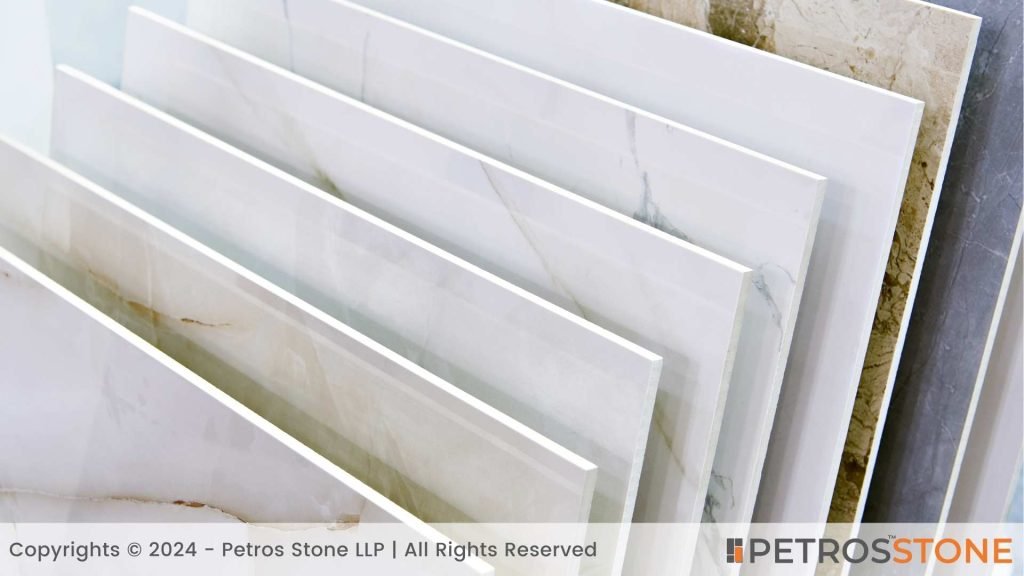
10. Water and Mold Resistance
- With a water absorption rate of less than 0.5%, porcelain is virtually waterproof.
- This makes it an excellent choice for humid areas like kitchens and bathrooms, where moisture can be a concern. Its resistance to mold and mildew adds to its hygienic benefits.
11. Enhances Resale Value
A well-installed porcelain countertop can increase your home’s market appeal. Its durability, aesthetic appeal, and low maintenance often translate to a higher resale value, particularly in competitive markets.
Cons of Porcelain Countertops
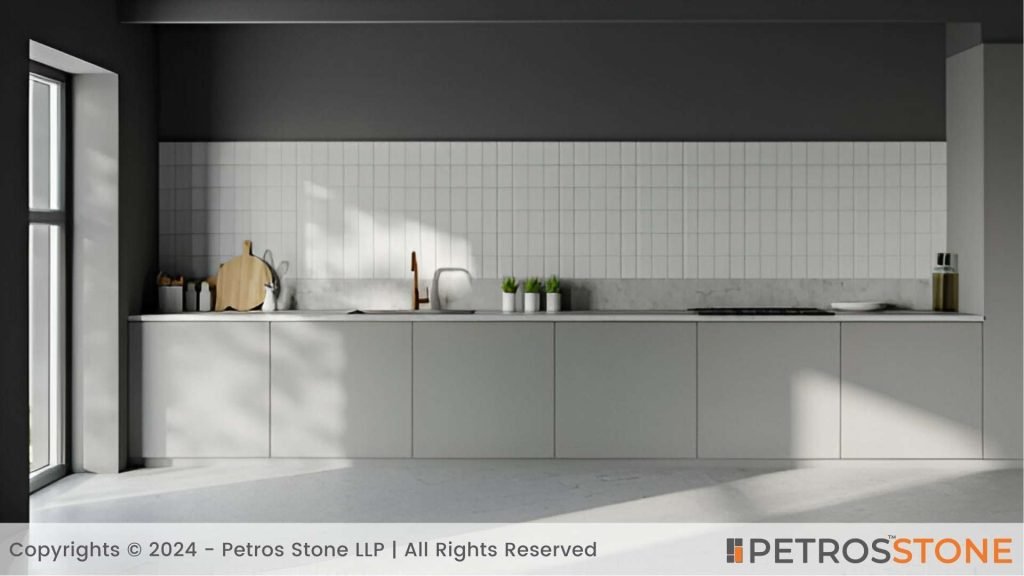
1. Higher Cost
- Porcelain countertops are pricier than some alternatives like laminate or butcher block.
- The cost increases further for custom designs or intricate installations.
- However, they can be considered a long-term investment when factoring in their longevity and minimal maintenance.
2. Edge Seam & Limited Edge Profiling Options
- The patterns and designs of porcelain are typically applied to the surface, not the edges.
- This can make the edges look unfinished or less cohesive with the rest of the slab.
- Options like mitered edges can improve the look but add to the overall cost.
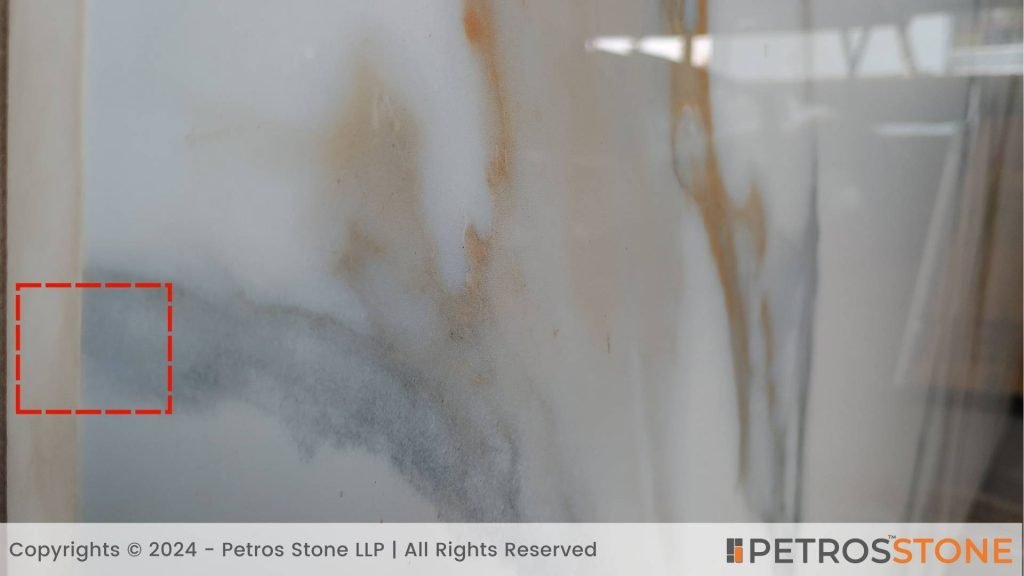
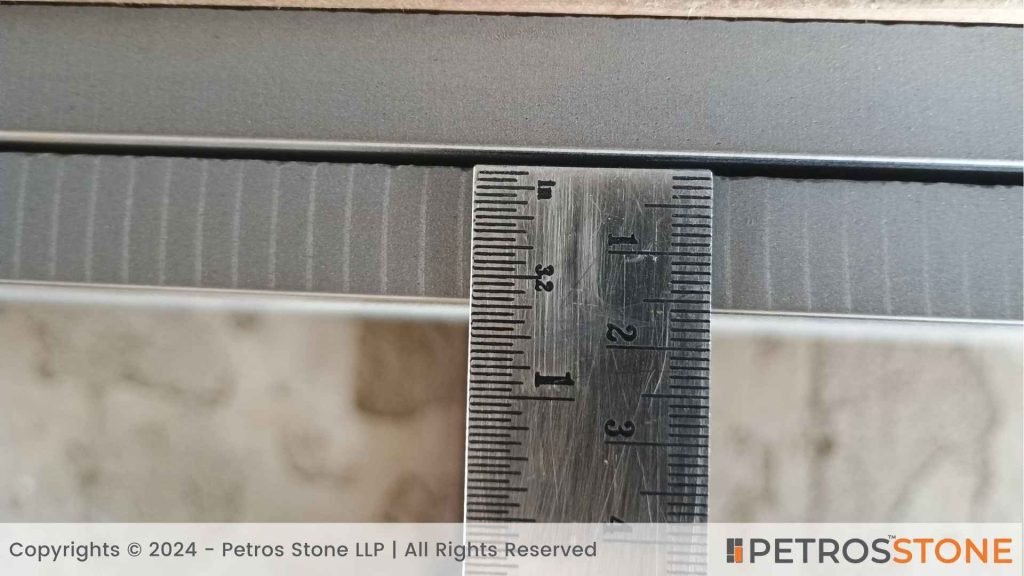
3. Susceptibility to Chipping
- Although durable, porcelain is not entirely immune to damage.
- Edges and corners are particularly vulnerable to chipping if struck with significant force.
- Careful handling during installation and everyday use is crucial to preserve its appearance.
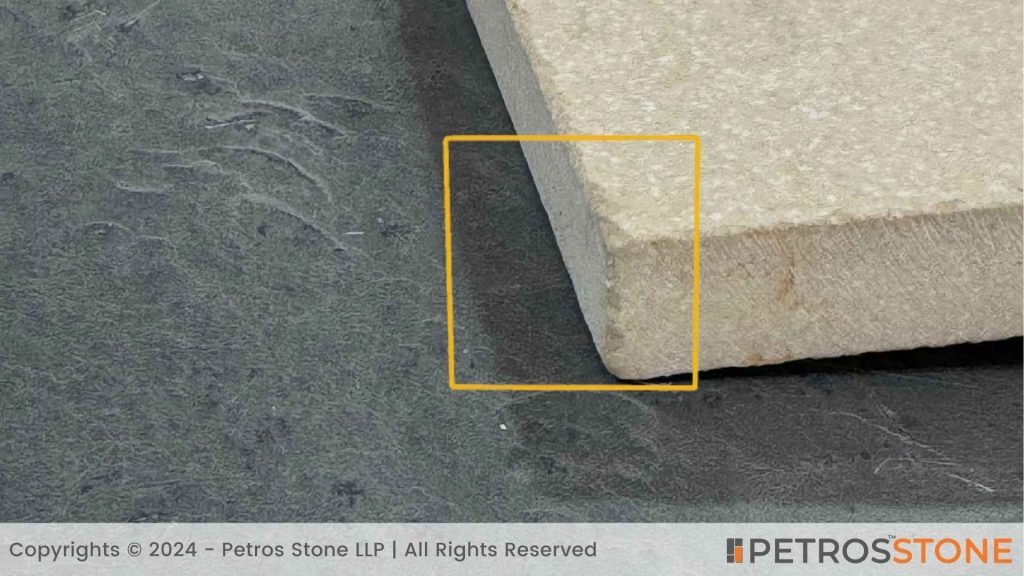
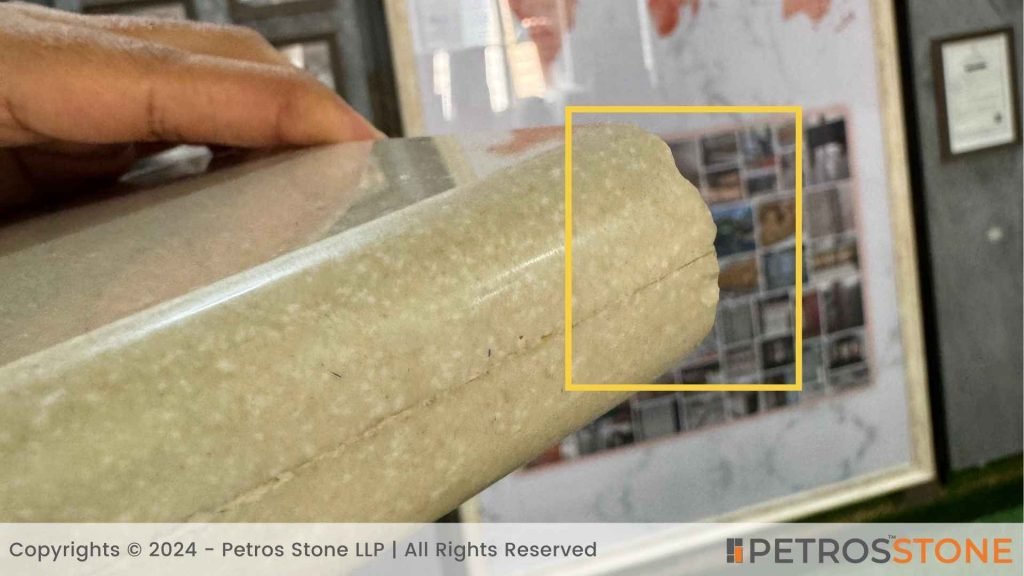
4. Thin Profile
- Porcelain countertops are often available in thinner slabs compared to natural stone, which may not appeal to homeowners seeking a thicker, more substantial look.
- However, techniques like edge mitering can create the illusion of thickness.
5. Cold Surface
- Porcelain retains a cooler temperature, which can feel uncomfortable in colder climates.
- While this is not a significant drawback in warm regions, it’s worth considering if you prefer a warmer countertop surface for comfort.
6. Complex Installation Process
Porcelain’s hardness makes it challenging to cut and install, requiring specialized tools and skilled professionals. Mistakes during installation, such as improper alignment or mishandling, can lead to cracks or costly repairs.
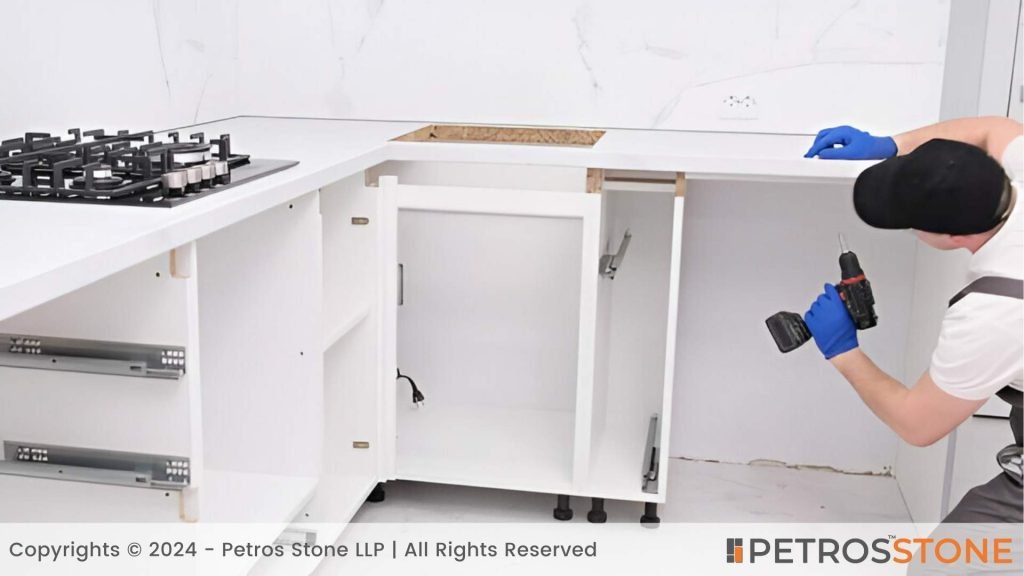
7. Noisy Surface
- Porcelain countertops can amplify noise due to their hard, non-porous nature.
- Activities like placing heavy cookware or dropping utensils can create sharp, loud sounds, which may be bothersome in homes with open floor plans or high ceilings.
8. Limited Resurfacing Options
- If a porcelain countertop surface becomes scratched, dulled, or damaged over time, it cannot easily be refinished or polished like natural stones such as granite or marble.
- The glaze applied to porcelain cannot be reapplied or restored, so maintaining its original condition is crucial to its longevity.
Applications of Porcelain Countertops
1. Kitchen Surfaces
They are ideal for worktops, islands, and backsplashes due to their durability and ease of cleaning.

2. Bathroom Vanities
Their water and stain resistance make them perfect for humid environments.
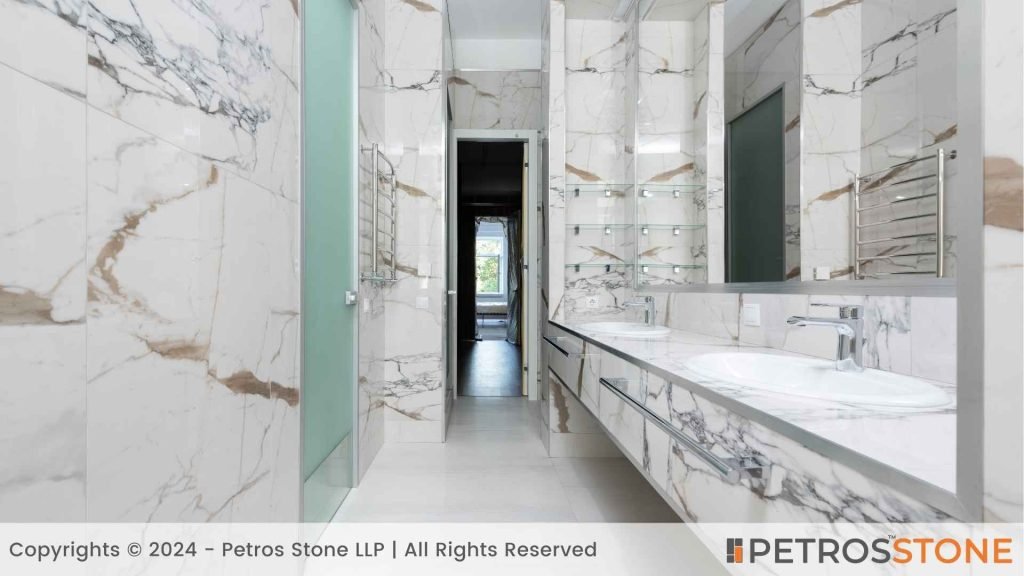
3. Outdoor Kitchens
Porcelain countertops can handle outdoor conditions better than many alternatives, thanks to UV and weather resistance.
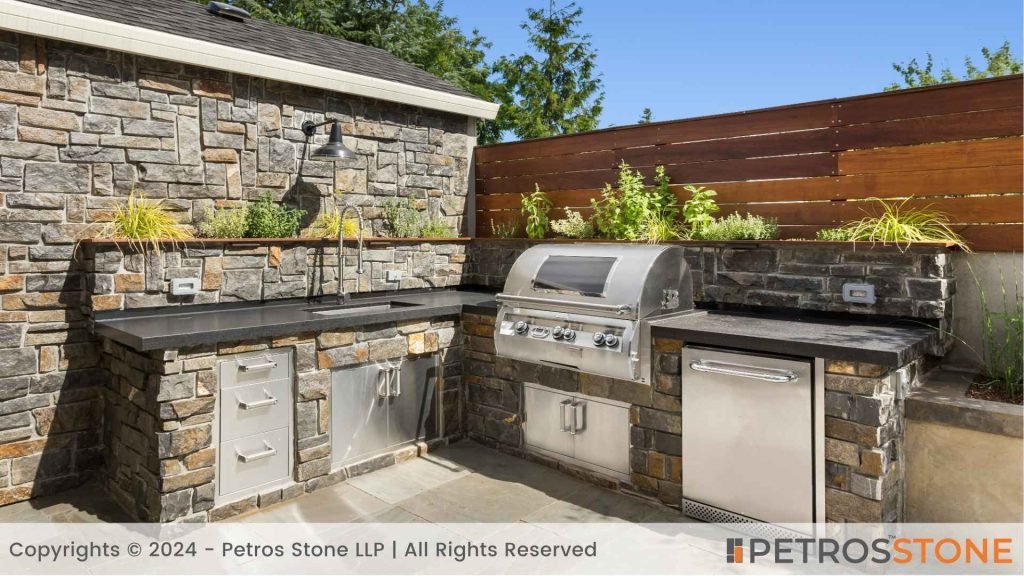
4. Commercial Spaces
Porcelain is increasingly used in retail stores, restaurants, and offices for its aesthetic appeal and low maintenance.
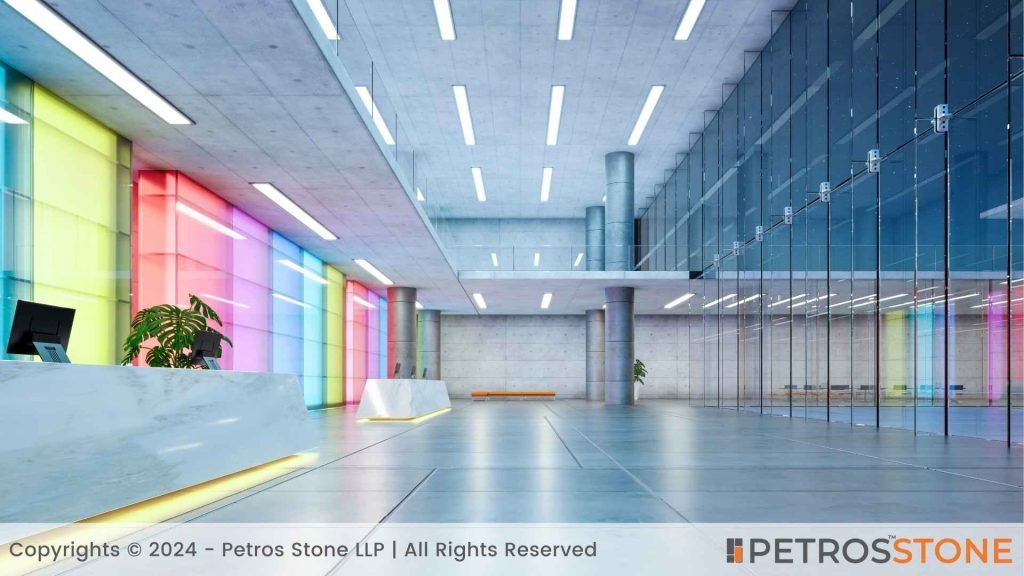
How do Porcelain Countertops Compare to Other Materials?
1. Porcelain vs. Granite
| Aspect | Granite | Porcelain |
| Durability | Greater edge strength, making it less prone to chipping. | Excels in scratch and stain resistance, ideal for high-traffic areas. |
| Design | Offers natural veining and unique patterns for a classic look. | Provides a broader variety of patterns and colors for versatile aesthetics. |
| Maintenance | Requires regular sealing to maintain its appearance and durability. | Does not require sealing, offering a low-maintenance alternative. |
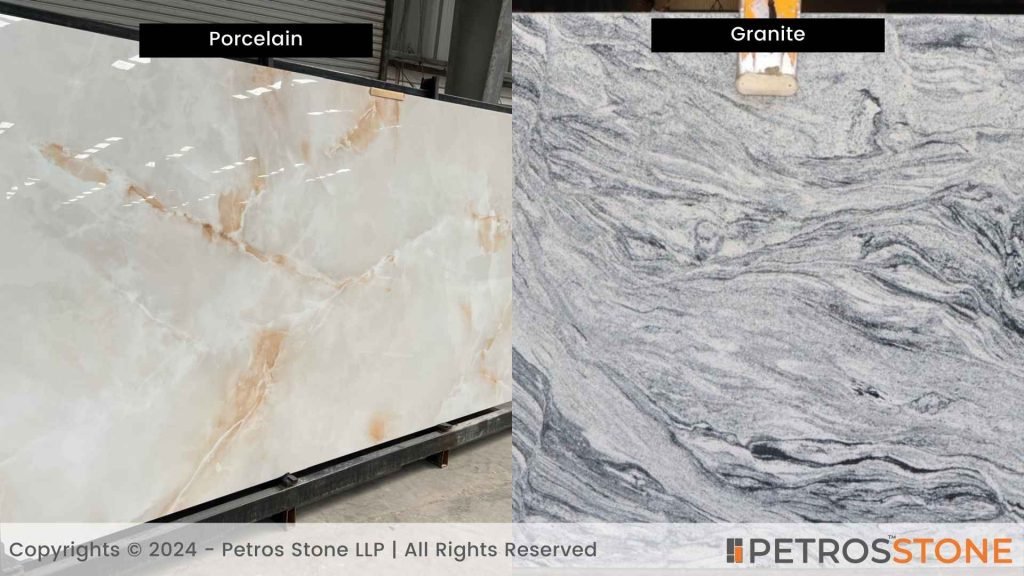
2. Porcelain vs. Quartz
| Aspect | Porcelain | Quartz |
| Heat Resistance | Withstands higher temperatures, making it more suitable for heat exposure. | May discolor or damage under extreme heat; use trivets or heat pads. |
| UV Resistance | Ideal for outdoor use as it resists fading in sunlight. | Fades or discolors with prolonged exposure to UV light; not recommended for outdoor applications. |
| Edge Design | Limited flexibility for intricate edge profiles. | Offers greater flexibility for detailed and intricate edge designs. |
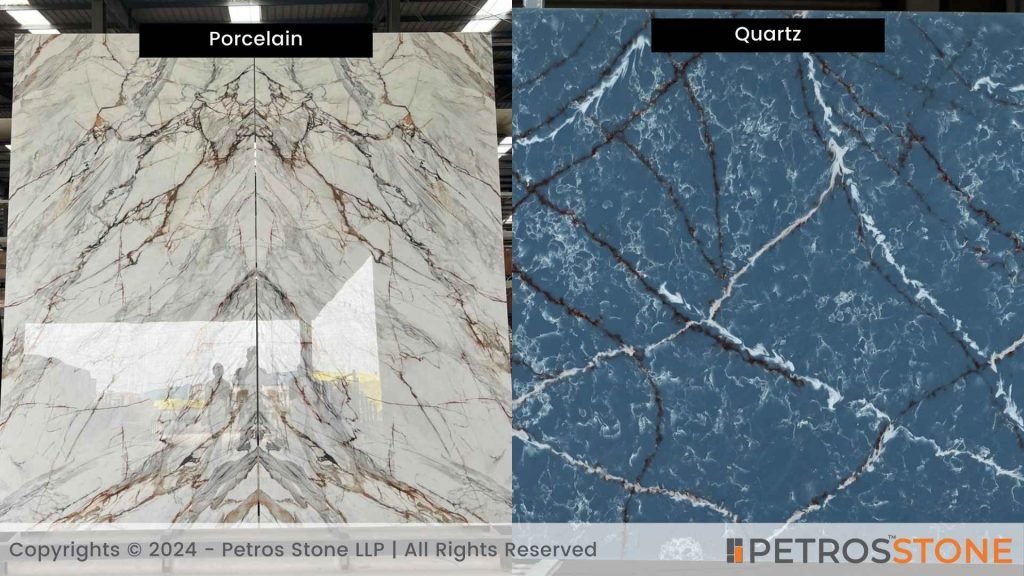
Maintenance and Installation of Porcelain Countertops
Maintenance Tips
1. Daily Cleaning
- Use a soft microfiber cloth and mild soap mixed with warm water to wipe down the countertop.
- Avoid abrasive sponges or scouring pads, which can dull the surface or scratch the glaze.
2. Dealing with Stains
While porcelain countertops are stain-resistant, spills should be wiped promptly, especially acidic substances like vinegar, lemon juice, or red wine. These may not stain but can cause etching over time if left on the surface.
3. Use Appropriate Cleaners
- Most household cleaning products are safe for porcelain countertops, but it’s best to avoid highly abrasive cleaners or industrial-grade chemicals.
- If you encounter stubborn marks, use a non-abrasive cleanser or a solution of baking soda and water.
4. Avoid Impact Damage
Although porcelain is highly durable, heavy items like cast iron pans or large appliances should be handled carefully to avoid chips or cracks, particularly near the edges.
5. Protective Measures
- Even though porcelain is heat-resistant, use trivets or heat pads for hot pots and pans, this helps preserve the countertop’s finish.
- Always use cutting boards when slicing or chopping to prevent micro-scratches and protect your knives.
6. Polish and Restore Shine (Optional)
If the surface appears dull after years of use, consult professionals about using a safe polishing compound to restore the sheen.
Installation Recommendations
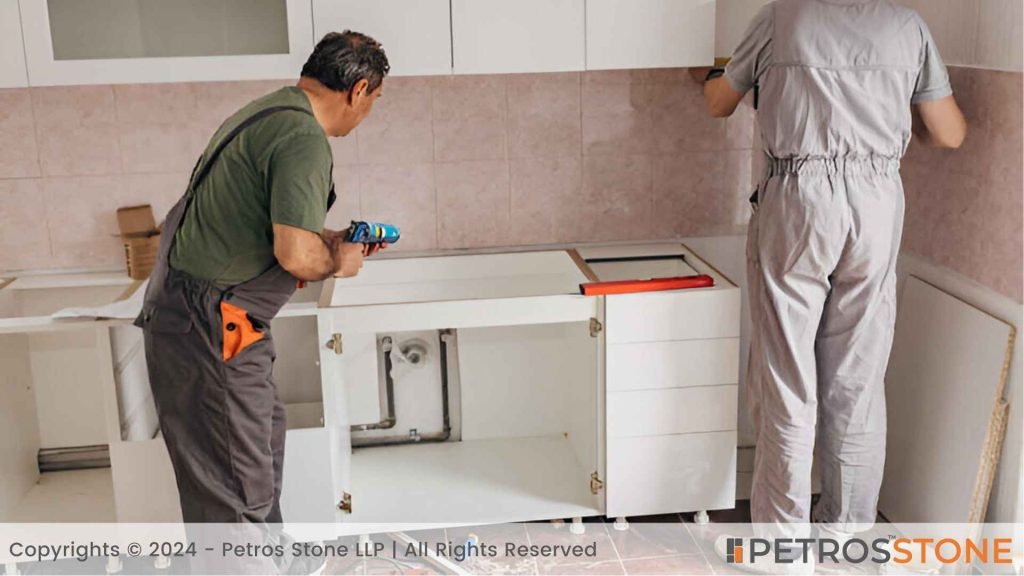
1. Hire Certified Professionals
- Porcelain countertops require specialized tools for cutting and installing.
- Choose a certified professional with experience handling porcelain to ensure proper alignment and avoid cracking during installation.
2. Edge Treatments
- Since porcelain designs are primarily on the surface, selecting the right edge treatment can enhance aesthetics.
- Mitered edges are recommended for achieving a seamless look that mimics thicker slabs.
3. Proper Handling
- Porcelain slabs are lightweight yet brittle.
- During transportation and installation, ensure slabs are securely supported to prevent cracking.
4. Adhesives and Sealants
- Use industry-recommended adhesives to bond slabs to surfaces.
- Though porcelain doesn’t require sealing, the surrounding seams and edges may benefit from water-resistant sealants to ensure longevity.
5. Allow for Seamless Appearance
- If possible, opt for large-format slabs to minimize visible seams.
- This improves the aesthetic appeal and reduces the likelihood of weak spots developing over time.
6. Environment-Specific Considerations
- For Outdoor Installations: Ensure the installer uses UV-resistant adhesives and accounts for weather conditions like temperature fluctuations.
- For High-Impact Areas: To prevent chips, reinforce edges and corners with extra support, such as edge guards or beveled designs.
Warranty and After-Sale Support
1. Verify Warranty Terms
Many manufacturers offer warranties for porcelain countertops. Ensure that you understand the terms, such as coverage for chips or defects during installation, and keep all documentation for future claims.
2. Request Aftercare Instructions
After installation, ask the manufacturer or installer for specific maintenance guidelines tailored to the brand of porcelain used.
Conclusion
Porcelain countertops offer the perfect combination of functionality, aesthetics, and durability. While they have a few drawbacks, like higher costs and susceptibility to edge chipping, their benefits far outweigh these limitations. Porcelain countertops provide a versatile and lasting solution, whether for a sleek modern kitchen, a hygienic bathroom surface, or an outdoor cooking area.
Feel free to get in touch for a free consultation, quote, and get a detailed understanding from our experts here at Petros®. Visit https://petrosstone.com/ or call +91-8446360361 and WhatsApp

Hi, I’m Khushbu,
With years of experience in the field of architecture, I’ve developed a deep appreciation for the impact of natural materials in design. At Petros® Stone, I write to share my perspective on how stone can modernize spaces with beauty, function, and timelessness.
Brown Granite
White Galaxy Granite
Blue Bahia Granite
Silver Cloud Granite
Black Pearl Granite
Dallas White Granite


